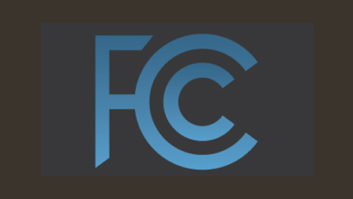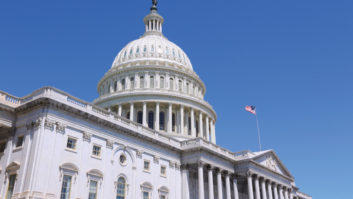The National Association of Broadcasters is hoping the Federal Communications Commission can find more efficient ways to gather information from broadcast licensees on foreign adversary ownership or control than what it has proposed.
In the notice of proposed rulemaking released in May, the FCC said it intended to require broadcasters and other entities holding licenses to make certifications and disclosures relating to foreign adversary ownership or control.
The commission said the proposed certification and information collection requirements would fill gaps in its existing rules and give it a new and comprehensive view of threats from entities owned or controlled by foreign governments that are considered adversaries.
Specifically, the FCC is looking at how to receive and certify that information from radio and TV broadcasters.
However, the NAB said in new comments filed this week that there is no proof that a “dramatic change in the FCC’s rules is needed.” The proposal ran contrary to the FCC’s “Delete, Delete, Delete” deregulatory initiative, according to the NAB.
It wrote that “given the dearth of evidence indicating that there are unknown and otherwise undiscoverable relationships between foreign adversaries and FCC-regulated entities,” it urged the commission to reconsider the need for additional rules in this area.
The White House has designated the following countries as foreign adversaries: China, Russia, Iran, North Korea, Cuba and the Maduro Regime in Venezuela.
NAB: Requiring “thousands” of licensees to submit certifications “makes no sense”
The FCC acknowledged in the proposal that broadcast ownership structures are complicated. The NPRM noted several broadcasters have experienced ownership changes in recent years that involve investments from private equity funds and other complex financial structures.
“In other cases, broadcasters have used nonvoting stock and warrants to shield foreign ownership interests from disclosure or attribution,” the FCC wrote.
The NAB said in its comments it hopes the commission can gather foreign adversary control information from broadcast licensees by more efficient means, which are also discussed in the FCC’s proposal. Those include limiting the certification obligation to those licensees that have disclosable foreign adversary control.
Specifically, the commission proposes to require broadcasters to certify that they are not directly or indirectly “owned by, controlled by or subject to the jurisdiction of a foreign adversary,” according to the NAB.
“It simply makes no sense to require thousands of broadcast licensees to submit certifications that they lack any reportable foreign adversary control, especially given the absence of evidence that foreign adversary control of radio and television licensees is or has been an actual problem,” the NAB wrote.
The imposition of such an extensive regulatory framework, the NAB said, would suggest that the commission is “seeking to cure a newly discovered, widespread problem of surreptitious foreign adversary investment in many regulatees.”
However, the commission’s notice does not cite even a single instance of the commission inadvertently awarding a covered authorization to a licensee controlled by a foreign adversary, NAB wrote.
“If the commission adopts any certification requirement at all, the notice’s alternative approach of requiring only regulatees with foreign adversary control to make reports to the commission would be a more appropriate, less burdensome choice,” NAB told the FCC.
Increase “dominant minority” thresholds
The NAB also urged the commission to increase the thresholds applicable to “dominant minority” interests, because the “proposed thresholds are so low that they would not realistically reflect an ability to control a regulated entity.” Absent such changes, the NAB urged the commission to adopt definitions consistent with existing requirements for disclosing interest holders.
NAB said “this approach would streamline the process of gathering information for purposes of making certifications, which will be significantly more burdensome than the notice estimates.”
The trade group said the commission’s streamlined revocation process proposed in the NPRM, which could strip authorizations from licensees that submit false certifications of no foreign adversary control, violates federal law.
The NAB said current law requires a hearing before an administrative law judge and several other measures to take place before the FCC can revoke a broadcast station license or construction permit.
The NPRM also proposed requiring additional certification and reporting about foreign adversaries that do not own or control broadcast stations but that provide programming to the public through leasing arrangements.
The commission said it currently allows broadcasters to lease all or part of their programming hours to outside parties through time brokerage or local marketing agreements, as long as the licensee retains control over the station.
Although parties that lease time from broadcasters are not required to disclose foreign ownership interests to the commission, the FCC said sponsorship identification rules require disclosure of the public of foreign sponsored programming in certain situations. In particular, the commission requires radio and television stations to broadcast a disclosure for any programming that is provided by a foreign governmental entity.
However, the NAB said the FCC doesn’t need to take further action to expand foreign ownership disclosure requirements at this time.
“Under existing commission rules, the infinitesimal number of arrangements between broadcasters and foreign governmental entities must already be disclosed to the public via on-air and online public inspection file announcements of their foreign governmental status. Thus, in the unlikely event that any foreign adversaries specifically are leasing time on television or radio broadcast stations, two forms of disclosure are already taking place.”
The NAB continued: “The existing rules already place an extraordinary burden on the thousands of commercial radio and television licensees who only lease time on their stations to local entities such as houses of worship, small businesses and high school football teams.”
Reply comments on the FCC’s proposal (GN Docket No. 25-166) are due Aug. 19.
In an earlier NPRM (GN Docket No. 25-149) released in April, the FCC proposed codifying certain rules about foreign ownership of broadcast licensees, including the limits to direct and indirect ownership.
Currently, a licensee must request specific approval for all foreign individuals and entities that will have 5 percent direct or indirect equity and/or voting interest in the controlling U.S. parent.






